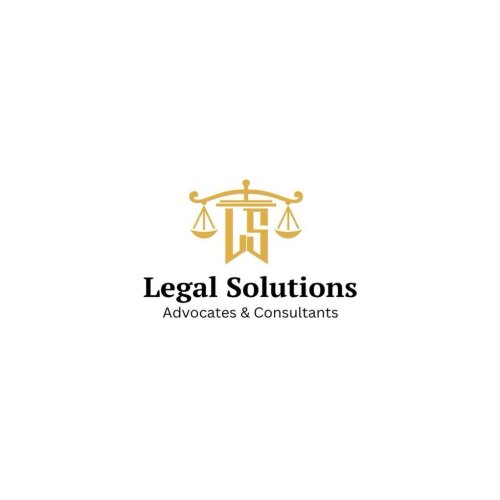Best Renewable & Alternative Energy Lawyers in Rawalpindi
Share your needs with us, get contacted by law firms.
Free. Takes 2 min.
List of the best lawyers in Rawalpindi, Pakistan
About Renewable & Alternative Energy Law in Rawalpindi, Pakistan
Rawalpindi, a prominent city in Punjab, Pakistan, has witnessed growing interest in renewable and alternative energy solutions. With increasing energy demands and frequent shortages, both the government and private sector are actively promoting the development and adoption of clean energy technologies such as solar, wind, and biomass. The legal framework in Rawalpindi, shaped by federal and provincial regulations, is designed to encourage investment, ensure environmental safety, and regulate aspects such as licensing, tariffs, and energy sale agreements. Understanding the unique legal environment in Rawalpindi enables individuals and businesses to adopt renewable energy solutions confidently and efficiently.
Why You May Need a Lawyer
Legal advice is often essential when dealing with renewable and alternative energy projects in Rawalpindi. Here are some common situations where a lawyer’s expertise can be invaluable:
- Acquiring permits and licenses for solar, wind, or other renewable energy installations
- Navigating complex power purchase agreements with local utility companies or third parties
- Addressing compliance with environmental regulations and local land use policies
- Resolving disputes regarding land rights, grid connectivity, and contractual issues
- Understanding government incentives, subsidies, and tax implications for renewable energy projects
- Managing intellectual property rights for new technologies and innovations
- Compliance with federal and provincial renewable energy targets and benchmarks
Local Laws Overview
Renewable and alternative energy laws in Rawalpindi are primarily influenced by federal legislation such as the Alternative Energy Policy, National Electric Power Regulatory Authority (NEPRA) regulations, and provincial policies. Key aspects include:
- Licensing and Permits: Every energy project above a certain capacity must obtain authorization from NEPRA and relevant provincial departments.
- Net Metering: Solar and wind power producers can benefit from net metering regulations under NEPRA, allowing them to sell excess electricity back to the national grid.
- Environmental Compliance: Projects must secure an Environmental Impact Assessment (EIA) from the Punjab Environmental Protection Agency (EPA) for installation and operation.
- Land Use and Zoning: The Rawalpindi Development Authority (RDA) oversees land allocation and zoning for energy projects in the region.
- Incentives and Subsidies: Both federal and provincial governments may offer incentives such as tax breaks, import duty exemptions, and financing schemes for renewable energy investments.
- Intellectual Property Rights: Protection of innovative renewable technologies follows national IP laws administered by the Intellectual Property Organization of Pakistan (IPO Pakistan).
Frequently Asked Questions
What permits are required to install a solar power system in Rawalpindi?
For commercial-scale systems, you must obtain authorization from NEPRA and relevant provincial departments. Domestic installations for personal use generally require approval from your utility provider, especially if you plan to use net metering.
What is net metering and how does it work in Rawalpindi?
Net metering allows individuals or businesses that generate their own electricity via solar or wind systems to feed surplus energy into the national grid and receive credit from the utility company. NEPRA oversees the regulations for net metering in Pakistan.
Are there government incentives for renewable energy projects in Rawalpindi?
Yes, the government offers various incentives such as reduced import duties on equipment, tax exemptions, and financing schemes to promote renewable energy. Specific details can vary based on project size and nature.
How can I resolve a dispute over land use for an energy project?
Disputes can be resolved through negotiation, mediation, or, if necessary, legal proceedings in civil courts. Consulting a lawyer familiar with land and energy laws can help protect your interests.
What are the environmental requirements for renewable energy installations?
An Environmental Impact Assessment (EIA) is generally required for commercial projects. Approval must be obtained from the Punjab Environmental Protection Agency before installation can begin.
Can I sell energy produced from my renewable installation to the utility company?
Yes, under the net metering policy set by NEPRA, you can supply surplus electricity to the national grid and receive compensation or credits from your utility provider.
What legal challenges might arise in a renewable energy project?
Common legal challenges include obtaining permits, complying with environmental standards, negotiating power purchase agreements, and dealing with land or contractual disputes.
Are there special requirements for foreign investors in renewable energy?
Foreign investors must comply with investment, ownership, and business registration laws, as well as relevant energy sector regulations. Specialized legal guidance can help address these requirements.
Does solar installation on residential property require approval from the Rawalpindi Development Authority?
For small-scale residential installations, direct RDA approval may not be needed, but it is advisable to check with local authorities and your housing society for any specific requirements.
Where can I get professional advice on renewable energy contracts and agreements?
It is recommended to consult a lawyer experienced in energy law. They can review contracts, assist in negotiations, and ensure your agreements meet legal standards in Rawalpindi and Pakistan.
Additional Resources
To learn more about renewable and alternative energy laws or to seek assistance, consider reaching out to the following organizations and bodies:
- National Electric Power Regulatory Authority (NEPRA) for licensing and net metering guidelines
- Punjab Environmental Protection Agency (EPA) for environmental approvals and compliance
- Rawalpindi Development Authority (RDA) for land use and zoning information
- Alternative Energy Development Board (AEDB) for information on policies and incentives
- Intellectual Property Organization of Pakistan (IPO Pakistan) for patent, copyright, and IP protection
- Local chambers of commerce and renewable energy associations for networking and support
Next Steps
If you need legal assistance regarding renewable and alternative energy matters in Rawalpindi, consider the following steps:
- Identify the specific legal issue, such as permits, contracts, or disputes
- Gather all relevant documents, including technical project details, correspondence, and existing agreements
- Consult with a legal professional experienced in renewable energy and local laws in Rawalpindi
- Contact the appropriate regulatory bodies or authorities as advised by your lawyer
- Stay updated on local and federal policies, incentives, and compliance requirements to avoid legal pitfalls
Taking these proactive steps will help ensure your renewable energy project is legally compliant, financially sound, and environmentally responsible.
Lawzana helps you find the best lawyers and law firms in Rawalpindi through a curated and pre-screened list of qualified legal professionals. Our platform offers rankings and detailed profiles of attorneys and law firms, allowing you to compare based on practice areas, including Renewable & Alternative Energy, experience, and client feedback.
Each profile includes a description of the firm's areas of practice, client reviews, team members and partners, year of establishment, spoken languages, office locations, contact information, social media presence, and any published articles or resources. Most firms on our platform speak English and are experienced in both local and international legal matters.
Get a quote from top-rated law firms in Rawalpindi, Pakistan — quickly, securely, and without unnecessary hassle.
Disclaimer:
The information provided on this page is for general informational purposes only and does not constitute legal advice. While we strive to ensure the accuracy and relevance of the content, legal information may change over time, and interpretations of the law can vary. You should always consult with a qualified legal professional for advice specific to your situation.
We disclaim all liability for actions taken or not taken based on the content of this page. If you believe any information is incorrect or outdated, please contact us, and we will review and update it where appropriate.












